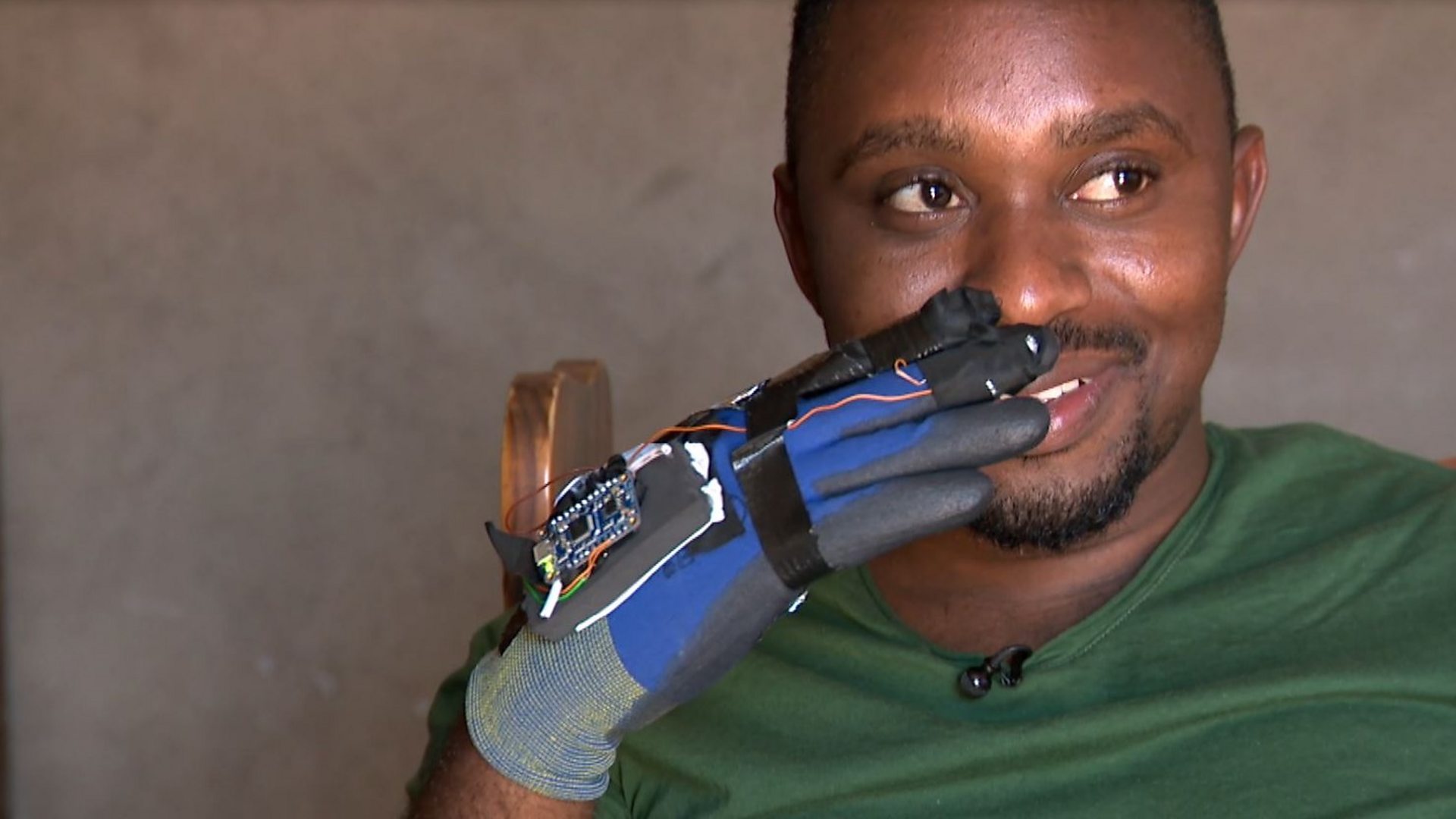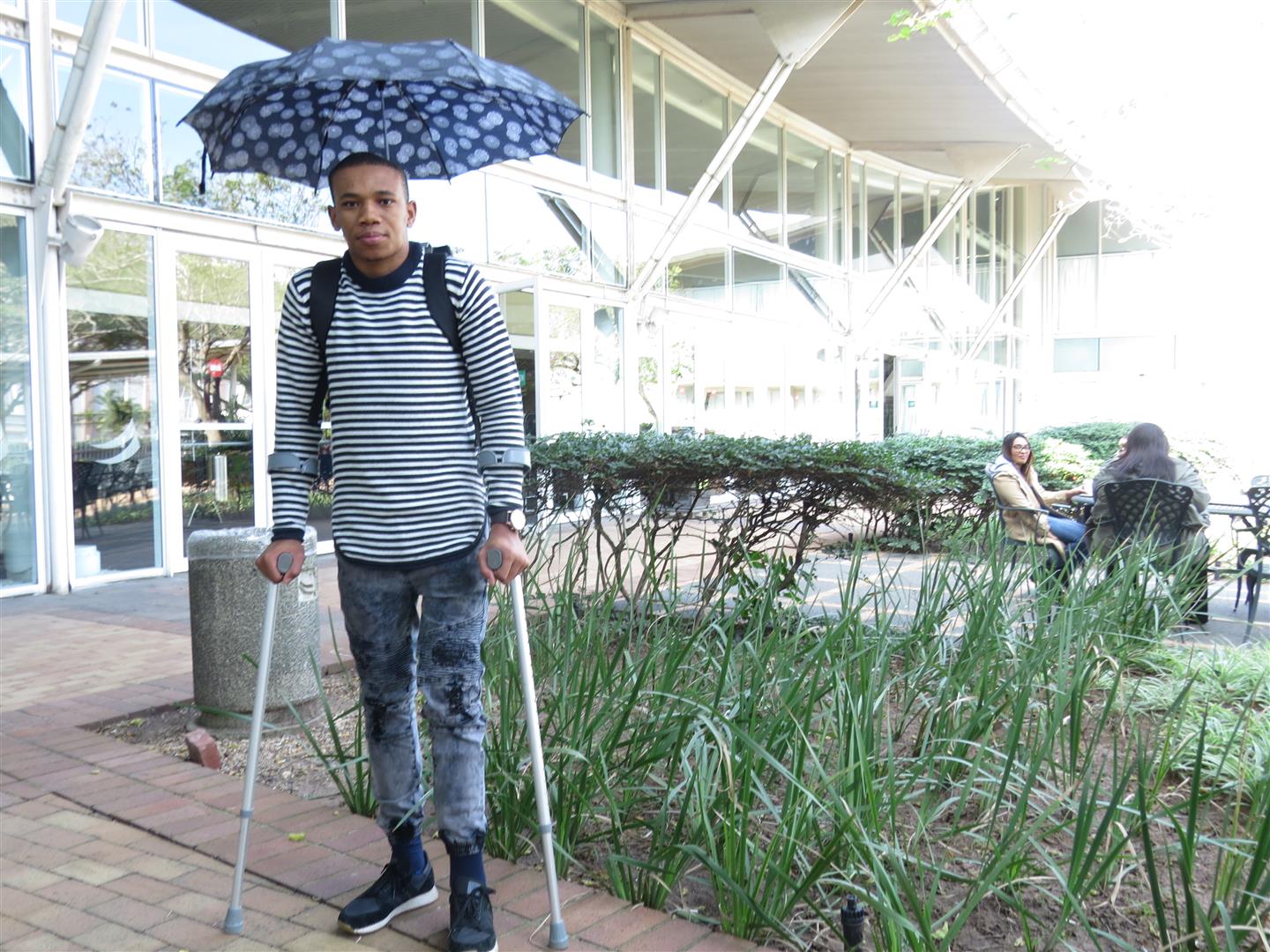Informal Innovation in South Africa: An (Invisible) Force to Be Reckoned With
July 28, 2023

Netshidzati Lucky Mashudu, created a smart glove which translates sign language into speech to communicate with his deaf parents.
One million informal innovators.
This staggering figure highlights the dynamic landscape of innovation and entrepreneurship within South Africa and stands as a shining example of the resilience and creativity that flourishes within the country. This is but one statistic that emerged from a recent in-depth study conducted by the United Nations Development Programme’s (UNDP) Accelerator Lab Network in partnership with Utrecht University (the Netherlands), the University of Johannesburg (South Africa), and MIT Sloan School of Management (USA). Collated in the report, “Making the Invisible Visible: Informal Innovation in South Africa”, the study represents a pioneering effort to systematically investigate, quantify, and analyse the prevalence, nature, and significance of informal innovation practices in South Africa.
Using methodologies comparable to those employed in high-income countries such as the US, UK, Russia, China, and South Korea, the study provides a statistical representation of informal innovation in the country and sheds light on how informal innovation and entrepreneurship have the potential to reshape the country's socio-economic fabric. It is also the first step in situating the country within the global innovation landscape.
Through its undertaking, the study bridges a critical knowledge gap by offering insights into the dynamics prevalent in the informal innovation sector. In addition to a quantitative understanding of the sector, the work delves deeper into the motivations, characteristics, and patterns of informal innovations in South Africa.
This includes not only understanding who the innovators are, but the challenges they face in their local context that has led to their creations. Moreover, the study also focuses on the broader systemic barriers that have led innovators down the path of informality.
Informal Innovation refers to the creative and adaptive processes through which individuals, often within grassroots or community settings, develop novel solutions, products, services, or practices in response to local challenges or unmet needs.
It is driven by a combination of unique factors that reflect a country's socio-economic environment, its historical background, and the challenges faced by its population. These can include economic inequalities, resource constraints, and a lack of access to formal structures. This type of innovation occurs outside of formal research and development structures, i.e. incubation hubs, and is typically driven by necessity and a deep understanding of the specific context in which it takes place. Because it operates outside these mainstream structures, informal innovation and its creators are often overlooked.
Making the Invisible Visible
By surfacing as many informal innovations as possible, we can not only validate the contributions made by these individuals but also tap into their deep understanding of local problems and needs to develop a holistic developmental picture of the challenges people are facing in their day-to-day reality.
Informal innovation serves as a powerful catalyst for socio-economic transformation. In a country grappling with unemployment, poverty, and inequality, informal innovators pave their way towards self-sufficiency. The impact of this innovation goes beyond immediate solutions. It fuels a sense of empowerment, demonstrating that change is within reach. By providing communities with the tools to shape their destinies, grassroots innovation is sowing the seeds of long-term change.
As South Africa looks toward the future, it's essential to recognize the power of informal innovation and nurture its growth. This requires fostering an environment where creativity can flourish, barriers can be overcome, and solutions can be shared. It calls for policies that support community-driven initiatives, educational opportunities that encourage critical thinking, and platforms that amplify the voices of innovators.
Making these contributions visible is the first step towards fostering a vibrant innovation ecosystem at all levels of society. By embracing, supporting, and amplifying the voices of informal innovators, data-driven insights can be used to build capacity, provide support, and guide policy decisions that can further harness the potential of this once-hidden force for positive change in the country.
Innovating for a Better Future
South Africa is a nation with its fair share of challenges; socio-economic inequalities, historical disparities, and access barriers are part of the reality for many. However, within these challenges lies an incredible wellspring of creativity and determination. Informal innovators are driven by necessity, compelled to find solutions where formal systems fall short.
This exploration of informal innovation paints a vivid picture of a nation where creativity, resilience, and community collaboration flourish in all corners of society. By acknowledging and enhancing the endeavours of individuals driving informal innovation, and by establishing a conducive atmosphere that values and bolsters their input, South Africa has the potential to forge a path towards a future characterized by greater inclusivity and prosperity. The stories and insights shared through this exploration serve as a reminder that innovation operates not solely within the domain of formal institutions; it thrives where creativity and determination intersect with the needs of the community.
UNDP recognizes the significance of grassroots innovators and their contributions to societal progress. By providing resources, mentorship, and platforms for these informal innovators, the UNDP helps create an environment where their ingenuity can thrive, ultimately contributing to sustainable development and inclusive growth. A copy of the report can be found here.

Siphiwe Zuma, created a retractable umbrella backpack for people with disabilities.

 Locations
Locations
